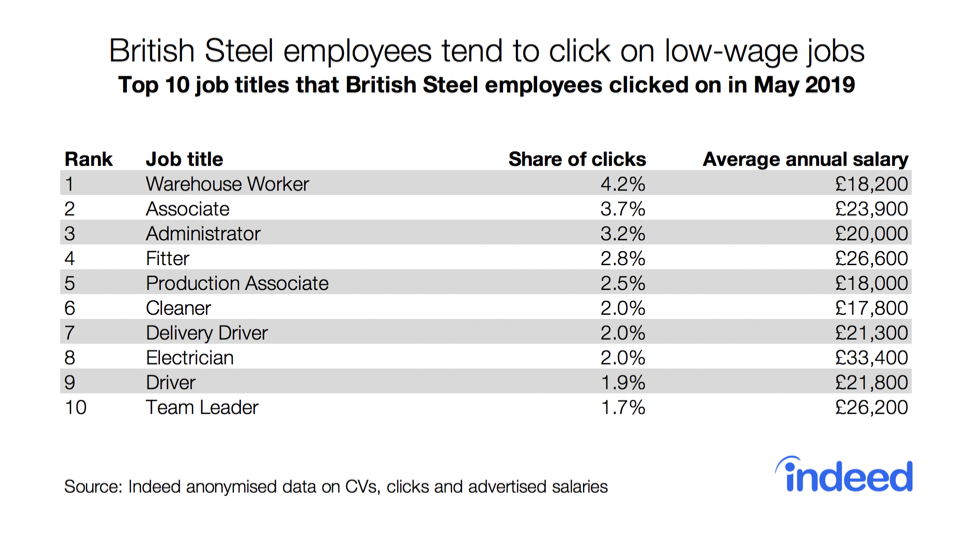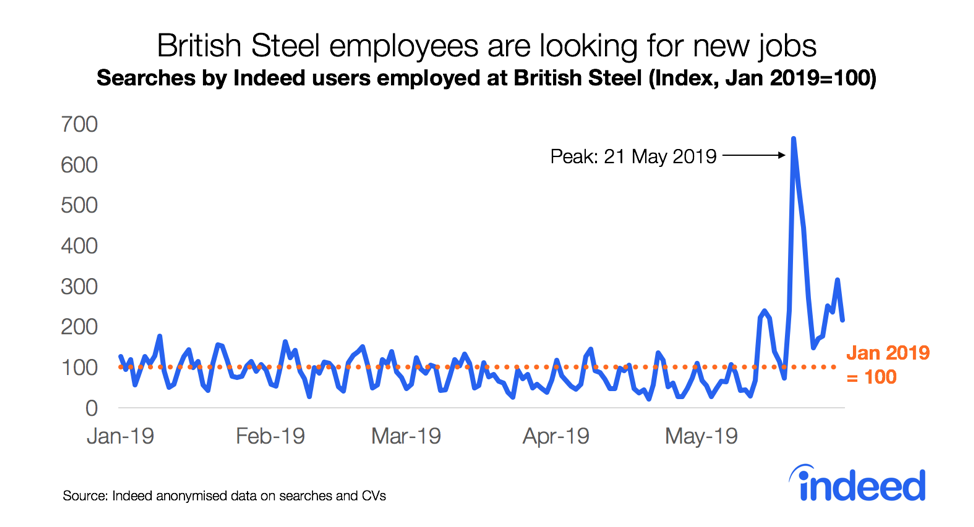British Steel workers reacted to the news of their employer’s financial troubles by quickly ramping up their job search activity.
Searches by the company’s employees on Indeed.co.uk soared almost immediately when rumours about British Steel’s future—and the threat of up to 5,000 jobs being at risk—began to circulate. The online job hunting spiked on 21 May when bailout talks collapsed, just before the company was announced insolvent. While search activity rapidly fell back, it continued at high levels as discussions about the company’s future went on.
The jobs British Steel employees clicked on were located mainly in Lincolnshire, North Yorkshire and East Riding of Yorkshire — close to the Scunthorpe mill where most of them worked. Many of the positions they looked at were low-wage jobs outside manufacturing, such as warehouse and retail work, cleaning and driving. Although openings for chefs, teachers and nurses are relatively plentiful in those areas, they are not on the target list of British Steel employees because they require different skills and qualifications.

Real-time data showing job searches like these highlight the impact a company’s collapse can have on workers in a town where manufacturing is in decline. While well-paid job opportunities abound across the UK, manufacturing employees at risk of losing their jobs are often forced to take service roles that pay less than their former employment — unless they are able to dedicate substantial time and money to retraining for better-paid careers.
When traditional industry disappears, one way to qualify for a highly paid local job is to learn new skills. But retraining can be expensive and time-consuming. That suggests policies should be considered to fund programs to teach workers new skills in places affected by the decline of manufacturing.
While the outlook for British Steel may be bleak, its employees have started searching for brighter futures.
Methodology
Data reflects trends on Indeed.co.uk, the UK’s largest job site, which receives over 40 million visitors each month. We identified British Steel employees by looking at the most recent employer listed on CVs uploaded to Indeed or updated on the site in the past 12 months. CVs were anonymised before use for research purposes. Average salary for each job title was calculated as the mean log salary advertised in job descriptions on Indeed in the UK in 2019, rounded to the nearest hundred. When job descriptions advertised an hourly wage, those figures were converted to annual salaries, based on the assumption of a 40-hour week.






